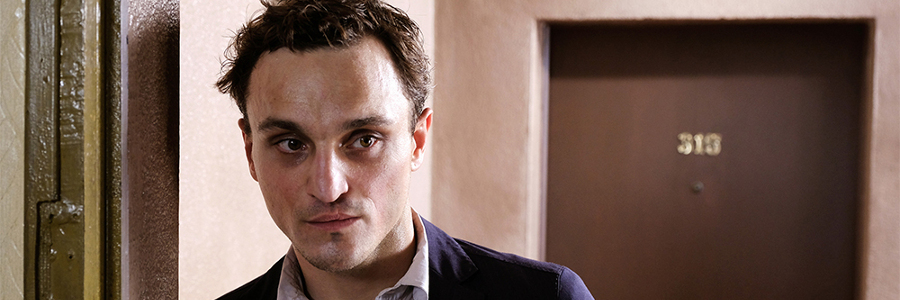In 2012, German director Christian Petzold commenced his stirring and powerful ‘Love in Times of Oppressive Systems’ trilogy. First came Barbara, the Berlin Silver Bear winning film about a young physician banished to a small East German town after attempting to escape the country. It was followed by Phoenix, the tale of a scarred survivor of Auschwitz who returns to Berlin in search of her husband, who has given her up for dead.
Transit, an adaptation of war refugee Anna Segher’s 1944 novel of the same name, marks the conclusion of the trilogy. Set in Nazi-occupied France, the film follows Georg (Franz Rogowski), a German refugee who adopts the identity of a dead author, Wiedel, in order to secure passage to Mexico. Arriving in Marseille, Georg’s plans are thrown into disarray when he meets and falls in love with Marie (Paula Beer), Wiedel’s wife, who is unaware of her husband’s fate.
Georg’s tale is one infused with fear, betrayal, and desperation, and he’s just as likely to find himself the victim as the perpetrator. In one moment he scares a woman into believing he is a Gestapo agent in order to access Wiedel’s room, the next he is so anxious to escape the vigilant eyes of the occupying forces that he takes shelter in a hotel despite believing that the manager will eventually turn him in. Despite the oddly listless and occasionally invasive narrator observing “He was tired, no one looked at him. That’s the terrible thing…You don’t exist in their world”, there’s a constant sense of tension in Transit; a sense that at any moment, Georg could meet a sudden end.
The film is likely to draw comparisons with Casablanca, especially in regards to the relationship between Georg and Marie. These comparisons are true in context, but not in effect. It is a love story, but there is no crowd-pleasing romance here. Nevertheless, their reckless connection is moving, and as the complexities of their situation begin to unravel, the tragedy of the situation becomes increasingly clear.
A definitive highlight of Transit is its sensational lead performance. Rogowski’s Georg is not a man of many words, but his movement speaks of a man perpetually on the edge of defeat. When we meet him he seems aloof, but Rogowski subtly lets the audience know there is more to this man than we see. Before long, it’s clear that whether Georg is ultimately pushed off the edge, or someone pulls him back from the precipice to instill a long lost sense of hope almost doesn’t matter. His trials have worn him down, and all he wants is for them to come to an end. There’s an irony to how this indifference makes us want to see Georg find a happy ending, despite one feeling all but impossible.

It’s a hauntingly moving tale, but one that not all audience members are sure to enjoy due to the film’s distracting stylisation. Petzold makes the bold decision of using modern France as the setting for his period tale, and the outcome is questionable. Choosing not to show swastikas is one thing, but Transit‘s use of modern costuming, locations, and general production design results in a jarring experience that, while not overt, is hard to overlook. It’s difficult to accept that Georg is running from Nazis in the story when on screen he’s racing down streets covered in vibrant spray-painted graffiti as a modern police van closes in.
The purpose behind this temporal dissonance is clear: Petzold wants us to consider how little the challenges faced by refugees have changed over the last 75 years. But does Transit really need to be pulled out of its period setting in order to make that point? I’m unconvinced.
As a result of the production design, Transit is a mixed experience. In the end, audience enjoyment of the movie is likely to come down to each viewer’s ability to appreciate (or at least overlook) jarring stylistic choices in order to embrace the heart of Petzold’s story. Those that can are sure to appreciate Georg’s journey, while those who can’t would be wise to consider something else.
—
Transit screens at ACMI from April 11 – 28.
